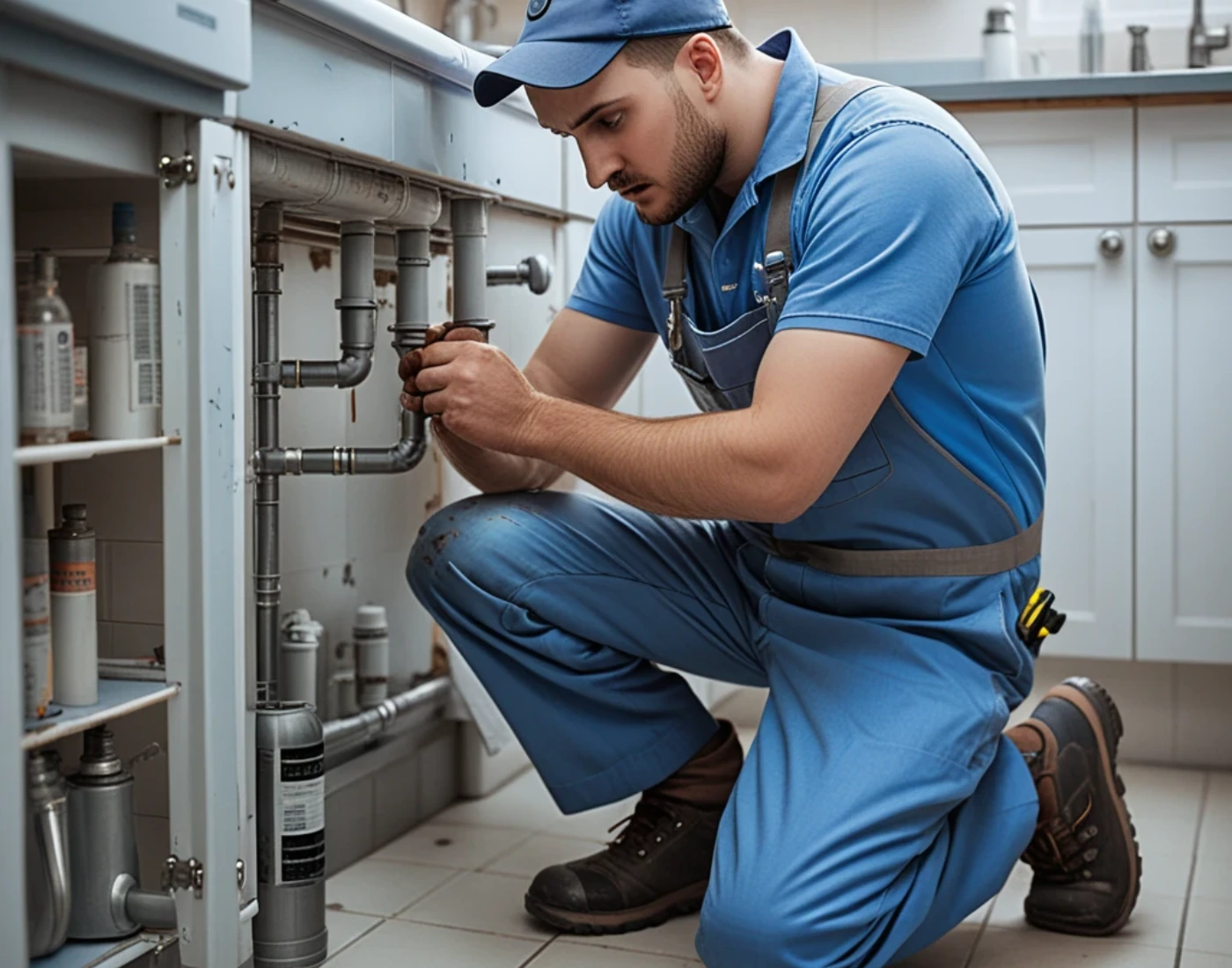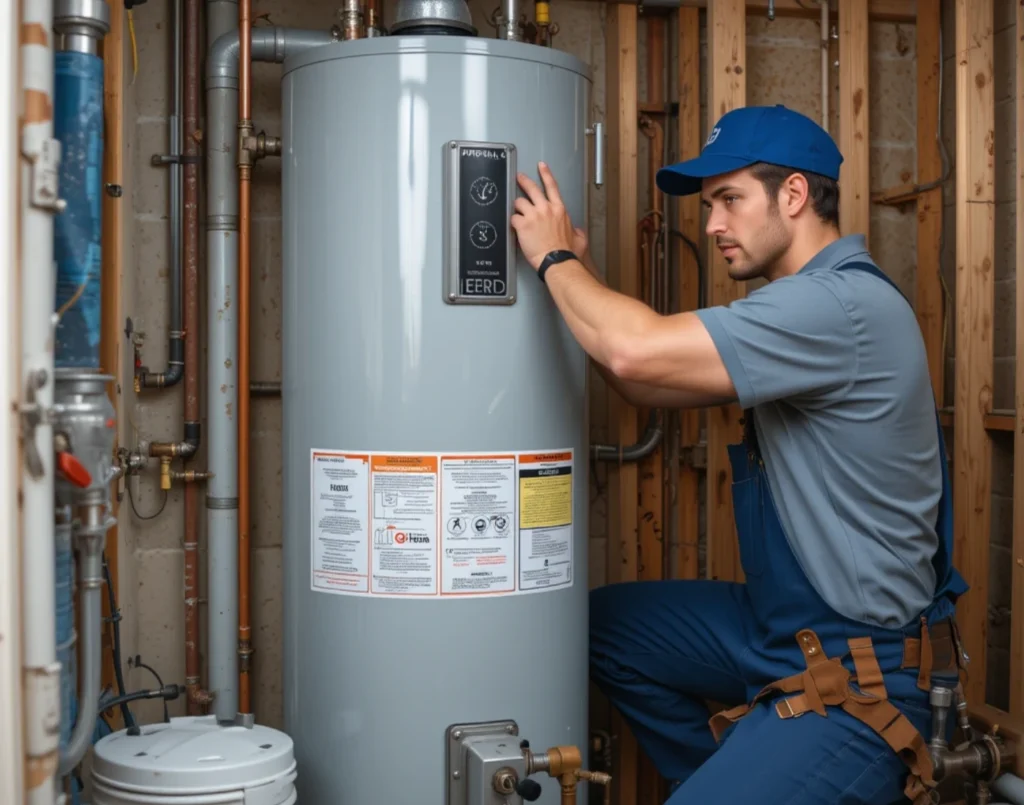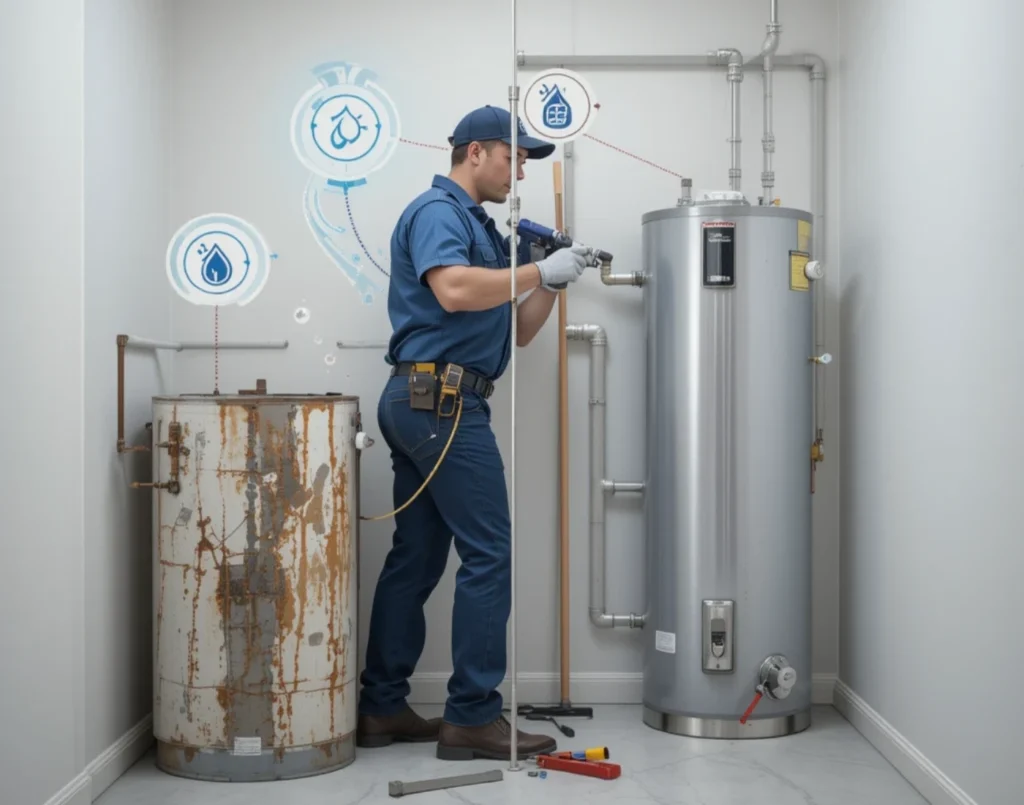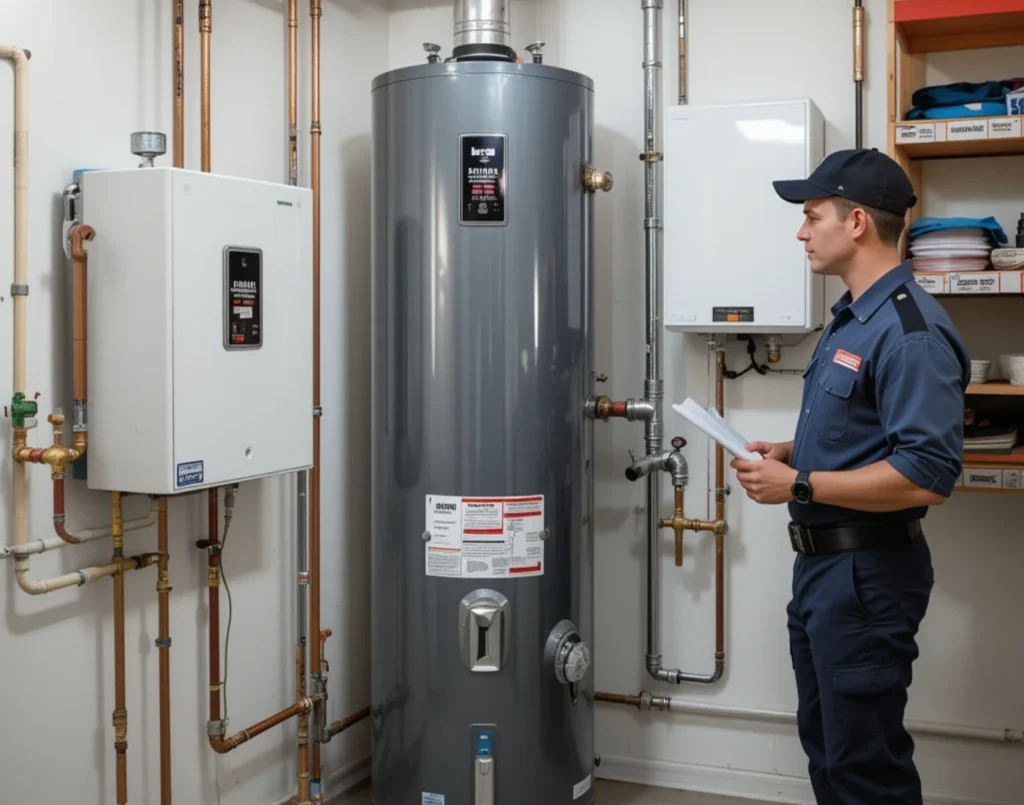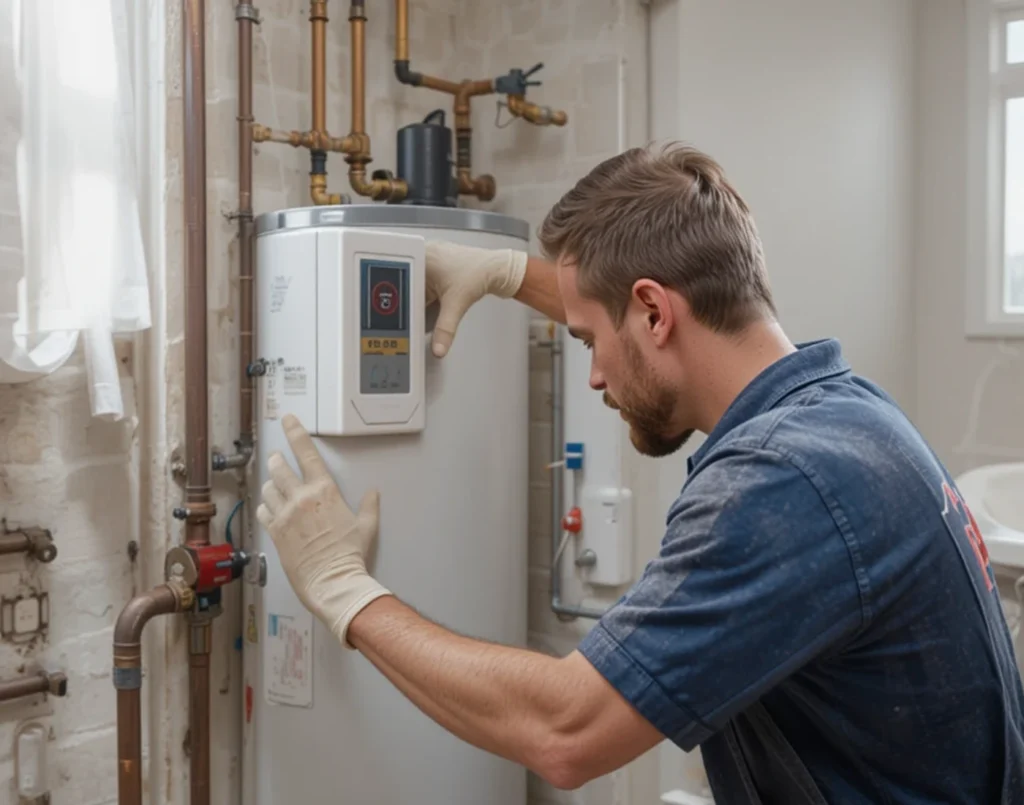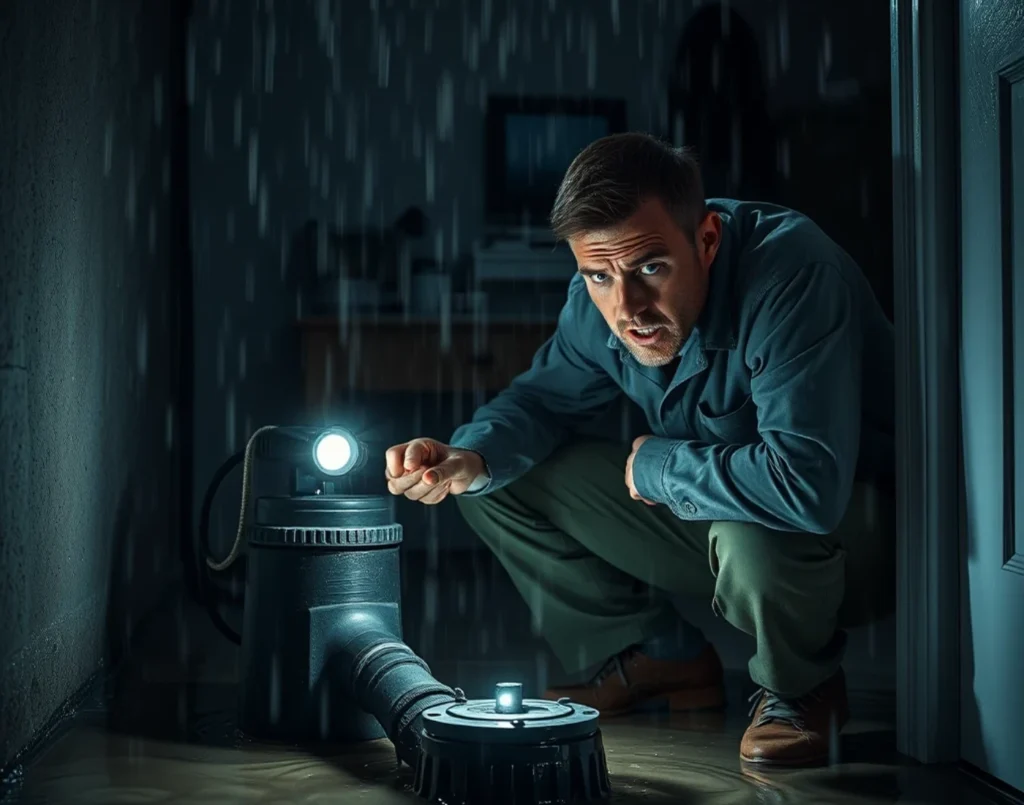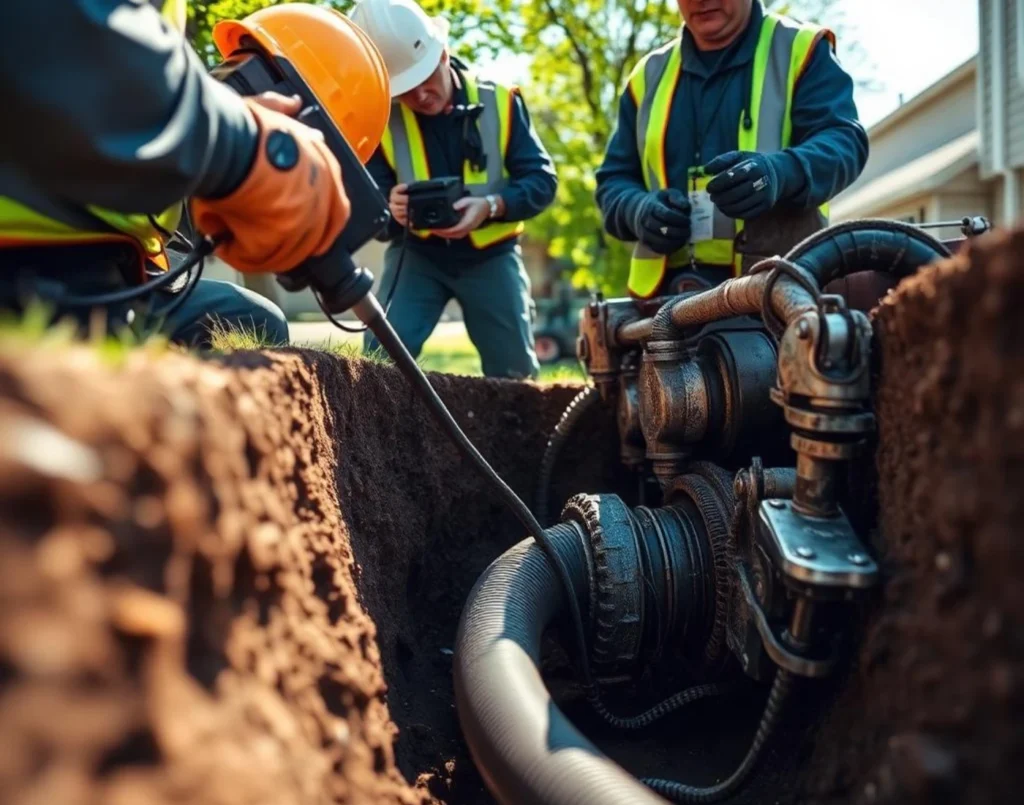Plumbing disasters rarely wait for business hours, and when they strike in the middle of the night, quick action is essential. From burst pipes to overflowing toilets, knowing how to respond before help arrives can save you thousands in repairs and protect your home from lasting damage. With the right steps and the right local professional on speed dial, you can limit the chaos and restore normalcy faster.
After-hours plumbing emergencies require fast, decisive action. Shut off your home’s main water supply, contact a licensed 24/7 plumber in [], and document any visible damage for insurance purposes. Avoid risky DIY repairs and rely on local experts familiar with area-specific plumbing codes to ensure safe, compliant, and lasting solutions.
How do you identify a plumbing emergency?
Frozen pipes expand and break, causing rushing water and rapid flooding through rooms.
- Leaking or ruptured tanks can flood basements or utility rooms with scalding water, posing safety hazards.
- Continuous overflow can cause bathroom flooding, with water seeping into the flooring and lower levels.
- Creates unsanitary conditions and serious health risks, demanding immediate professional intervention.
- Any plumbing issue causing flooding, safety risks, or potential property damage should be treated as an emergency. Act without delay.
What are the first actions to take?
Your immediate response determines how much damage occurs before professional help arrives. Stay calm and follow these critical first steps to protect your home and family.
Shutting Off the Main Water Supply
- Find your main water shut-off valve right away. It’s usually close to where the water line comes into your home.
- Turn the valve clockwise to completely stop water flow to your entire house
- Make sure the water stops flowing by turning on a tap to test the shutoff.
- Clear items around the valve to keep it accessible before an emergency.
The main water shut-off valve is your most powerful tool against water damage. Many homeowners don’t know where it is until disaster hits. This wastes valuable minutes while water floods their property.
Avoiding Electrical Hazards
Water and electricity create deadly combinations that claim lives every year. Stay away from flooded areas where water may cover fixtures, appliances, or outlets. At your circuit breaker, turn off the power to the impacted locations.
Keep family members, especially children, away from standing water. They may not know the dangers. If water is near your electrical panel or big appliances, leave the area. Wait for experts to help.
What Temporary Solutions Can Contain Damage?
Stop the water source first. Contain the water after that to avoid further harm. Here, prompt intervention prevents thousands of dollars in repair expenses.
Using Towels and Buckets for Leaks:
- Deploy every available towel to create barriers around the spreading water.
- Position buckets in locations directly beneath active leaks to catch dripping water.
- Use plastic sheeting or tarps to move water away from furniture and electronics.
- Valuables should be moved right away to rooms that are untouched or higher ground.
Even small leaks can cause significant damage over hours. A pinhole leak in copper pipes can leak hundreds of gallons overnight. This can soak floors and damage rooms below.
Employing Safe Temporary Fixes
- Leave major repairs to licensed plumbers to prevent worsening the issue.
- Use pipe clamps or rubber patches secured with hose clamps for a quick seal.
- Wrap damaged sections for short-term leak control.
- Use a drain snake for light blockages; avoid aggressive plunging if flooding risk is high.
- They can damage pipes and release harmful fumes, especially with standing water present.
Why is professional help essential?
Complex plumbing repairs during emergencies can cause bigger problems. They might also void your insurance coverage. Emergency plumbers have special tools and skills. They fix problems right the first time.
Importance of 24/7 plumbing availability
Emergency plumbing services
Plumbing emergencies can happen at any time, so it’s essential to work with professionals who operate around the clock. A burst pipe at midnight can cause just as much damage as one during business hours, and only licensed plumbers have the right tools and parts for lasting repairs. Choosing a licensed and insured plumber also provides liability coverage, protecting you if additional damage occurs during the repair process. Many of these professionals work directly with water damage restoration companies, ensuring a coordinated and complete emergency response that restores your home quickly and safely.
24/7 emergency plumbing services:
- Keep fully stocked service trucks ready for rapid emergency response at any hour.
- Maintain on-call technicians trained to handle urgent after-hours plumbing issues.
- Local hardware stores may offer temporary repair supplies for homeowners.
- Only licensed plumbers carry the specialised tools and genuine parts needed for lasting, code-compliant repairs.
What to Communicate to the Plumber
- Describe the exact problem, burst pipe location, type of fixture involved, and extent of flooding
- Explain what you’ve done, whether you’ve shut off water, applied temporary fixes, or moved items
- Provide your address clearly and any special access instructions for night arrival
- Mention safety concerns like electrical hazards, gas leaks, or structural damage
Clear communication helps emergency plumbers arrive prepared with appropriate tools and parts. Phone calls to dispatch should include details about water pressure issues, the age of your plumbing system, and whether you’ve experienced similar problems before.
What preventive measures can prevent future emergencies?
Compared to emergency repairs and water damage restoration, prevention is significantly less expensive. Regular maintenance and family preparedness keep minor issues from becoming major disasters.
Regular Plumbing Inspections
Schedule yearly inspections with licensed plumbing professionals to catch problems before they escalate into costly emergencies. During these visits, plumbers check for worn pipes, faulty water heater components, and hidden leaks that homeowners often overlook. Adding pipe insulation protects against freezing in cold climates, while routine water heater maintenance extends equipment life and prevents unexpected breakdowns
Water pressure regulators
Individual fixture valves help you fix problems without shutting off water to your entire home. Understanding your plumbing layout helps you respond quickly in emergencies.
Educating family members:
- Show everyone where the emergency shutoffs are located and how to operate them
- Practice emergency procedures during calm moments, not during actual crises.
- Keep emergency contact numbers easily accessible for all family members
- Discuss different emergency scenarios, like burst pipes, overflowing toilets, and sewer backup
Take control before a crisis strikes
Plumbing emergencies test both your readiness and your ability to act quickly. By following the right steps, you can limit damage and protect your home. Your response in the first few minutes often determines whether the situation requires a minor repair or a major restoration. Don’t wait for disaster to strike. Locate your shutoff valves now and research licensed emergency plumbers in your area. This week, inspect your plumbing system and create a clear emergency action plan to share with your family.
Frequently Asked Questions
1. What can I do if I have an after-hours plumbing emergency?
If you have an after-hours plumbing emergency, immediately shut off the water supply to prevent further damage. You can contact an emergency plumber who offers 24/7 service. Many plumbing companies provide emergency support during off-hours to address urgent issues like burst pipes, clogged drains, or water heater failures.
2. What are the most common types of emergency plumbing?
The most common types of emergency plumbing issues include burst pipes, sewage backups, clogged drains, water heater malfunctions, and gas leaks. These issues require immediate attention to prevent significant damage to your property and avoid health and safety risks.
3. How do I know if I have a plumbing emergency?
You have a plumbing emergency if you experience signs like significant leaks, a lack of water pressure, foul odours from drains, gurgling noises, or water flooding your home. Any issue that could cause water damage, structural problems, or health risks should be treated as an emergency.
4. What is considered a plumbing emergency?
A plumbing emergency is any issue that requires immediate attention to prevent property damage, health risks, or safety concerns. This includes burst pipes, sewage backups, and gas leaks. If water damage is spreading or if the plumbing system is completely non-functional, it’s time to call an emergency plumber.
5. How can emergency plumbers help with the 8 most common plumbing emergencies?
Emergency plumbers can address common issues like burst pipes, blocked drains, water heater failures, leaky faucets, frozen pipes, sewage backups, gas leaks, and toilet overflows. They offer quick, professional repairs to minimise damage and restore functionality, often working around the clock to resolve urgent plumbing problems.

